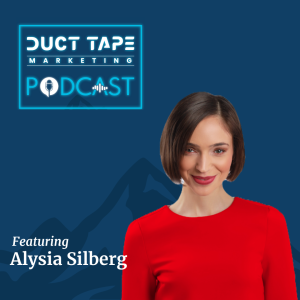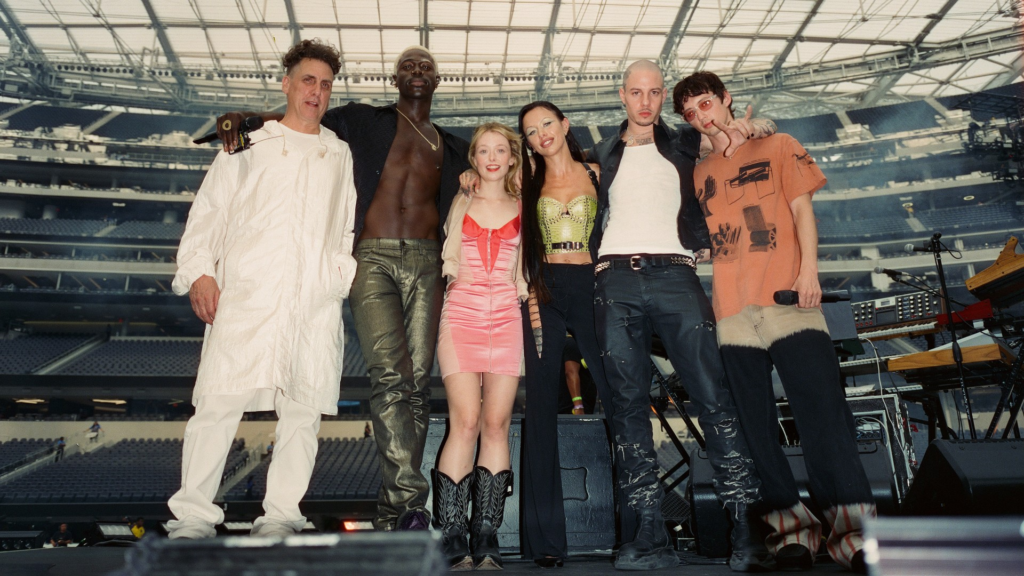Unveiling The Future Of AI written by John Jantsch read more at Duct Tape Marketing Marketing Podcast with Kenneth Wenger In this episode of the Duct Tape Marketing Podcast, I interview Kenneth Wenger. He is an author, a research scholar at Toronto Metropolitan University, and CTO of Squint AI Inc. His research interests lie at the intersection of humans and machines, ensuring that we build a future based on the […] Embracing Your Entrepreneurial Superpower Being Unemployable written by John Jantsch read more at Duct Tape Marketing Marketing Podcast with Alysia Silberg In this episode of the Duct Tape Marketing Podcast, I interview Alysia Silberg. She is a leading venture capitalist in Silicon Valley, where she mentors tech startups and helps them go public. She is the CEO & General Partner of the investment firm Street Global. Her online radio show: Global Fireside Chats, brings together global industry titans to share insights on our fast-changing world. Furthermore, Alysia is a UN Women Empower Women Global Champion and an international board director with sovereign wealth fund experience. Her first book, Unemployable: How I Hired Myself details her life story and guide to financial freedom. It’s a guide that helps to change your mindset from “I can’t” to “I can”. Key Takeaway: Alysia changes the narrative of being “unemployable” and relates it to entrepreneurship and finding one’s superpower in business. Being unemployable is something to be proud of, as it often reflects the mindset and qualities of an entrepreneur, that can lead to innovation and generate changes. She emphasizes the importance of owning one’s uniqueness, taking risks, embracing curiosity, and seizing the opportunities presented by the digital revolution. The current business environment, which Alysia describes as a “modern-day renaissance”, it’s a time for innovation and new opportunities. It’s important to leverage the power of AI and digital tools to start and grow a business and develop each person’s superpower. Questions I ask Alysia Silberg: [01:52] Tell me a little bit about the artwork from the book cover. [03:07] Your book launch party was at a roller rink. How did that come about? [04:13] Why is the book called Unemployable? [07:20] Can you name a particular instance in your career where you felt like “This is going to work, this is like what I should be doing”? [08:58] You talk about superpowers and finding your superpower. Does your superpower have a name? [10:00] Back in South Africa you got shot, what did that story mean to your journey? [11:53] Is there anything about what’s going on right now in the current business environment that you think makes us a strong time? [15:25] What’s the first step you tell people to acquire the mindset you talk about? [18:23] What are your thoughts on the idea that there are proven business models and you don’t have to like to create a whole new thing from zero? [19:41] Based on where you see where we are today, what’s work going to look like in 10 years? More About Alysia Silberg: Get your copy of Unemployable: How I Hired Myself Connect with Alysia and follow her on Instagram More About The Agency Certification Intensive Training: Learn more about the Agency Certification Intensive Training here Take The Marketing Assessment: Marketingassessment.co Like this show? Click on over and give us a review on iTunes, please! Duct Tape Transcript Email Download New Tab John Jantsch (00:00): Hey, did you know that HubSpot’s annual inbound conference is coming up? That’s right. It’ll be in Boston from September 5th through the eighth. Every year inbound brings together leaders across business, sales, marketing, customer success, operations, and more. You’ll be able to discover all the latest must know trends and tactics that you can actually put into place to scale your business in a sustainable way. You can learn from industry experts and be inspired by incredible spotlight talent. This year. The likes of Reese Witherspoon, Derek Jeter, Guy Raz are all going to make appearances. Visit inbound.com and get your ticket today. You won’t be sorry. This programming is guaranteed to inspire and recharge. That’s right. Go to inbound.com to get your ticket today. (01:03): Hello and welcome to another episode of the Duct Tape Marketing Podcast. This is John Jantsch. My guest today is Alysia Silberg. She’s a leading venture capitalist in Silicone Valley where she mentors tech startups and helps them go public. She is the CEO and general partner of the investment firm, street Global. Her online radio show, global Fireside Chats brings together global industry tightens to share insights on our fast changing world. She is a UN Women Empower Women Global Champion, and an international board director with Sovereign Wealth Fund experience. We’re gonna talk about her first book, Unemployable: how I Hired Myself. So Alysia, welcome to the show. Alysia Silberg (01:47): Hi John. Very excited to be joining you. Thanks for having me. John Jantsch (01:50): So listeners can’t see this, although you’ll see, you can see it in the show notes, the video of folks obviously will see it, but I, you have a picture of the artwork from the cover behind you there in the in frame and I just, I wanted to start there because I just absolutely love it. So tell me a little bit about, I mean I frankly it’s a work of art. Alysia Silberg (02:08): Thank you. Um, very excited to hear you say that. So you talk about being unemployable, you talk about the future of ai. I know these are themes we’ll be chatting about today, but I had five designers trying to come up with what it meant to be unemployable and no one could convey that in imagery. And one of my founders who has an ed tech startup focusing on AI in Minneapolis, he said, let me sit down and let me take the book and let me put it in open AI’s design platform and let’s see what happens. And the, this is what the AI came up with. It’s the essence of a founder’s journey and it’s interpreting it, you know, that drive and ambition, you know, like that all of its embodied it that in this situation happens to be my image. But I’m, I’m very excited that we created that connection with the AI and it turned out the way it did. John Jantsch (02:55): Yeah, it’s kind of a, a block, almost like a Japanese block print illustration. It’s really fabulous. Okay, another totally unrelated topic to the book, sort of, I also love that you were doing a book launch party at a roller rink. How did that come about ? Alysia Silberg (03:11): Well, we’re gonna be, you know, the book is about finding your superpower and you know, superpowers are often unexpected and we discovered them in the weirdest of ways. And for me, they happened to be, I went to a pair of pink roller skates at five years old. I went to them more than anything on earth and I couldn’t afford them. No one in my family could afford them. And I had to figure out how I could get these pink roller skates and I built a business and you’ll read all about it in the book. Crazy wild Only founders understand what it means to, to want something so badly. And I never wore those roller estates ever. I treasured them cuz they reminded me of what’s possible. The dreamer, you know, anything is possible. And so the idea of having a a roller skating party for the book was the only thing I could do to honor each of our journeys. For me it’s roller skates. For you it was probably something else, but once a founder, always a founder and it was just, it’s the way it’s meant to be John Jantsch (04:05): Kind of sounds like a load of fun too. So there’s that . So why unemployable? I mean that that name specifically or that term specifically as opposed to entrepreneur or, you know, I, I know obviously you’re trying to convey something maybe a little deeper. Alysia Silberg (04:26): Absolutely. So I was trained as an actuary and I went for a career aptitude test at a bank. And I was like, you know, on my way thinking I joined, you know, a big bank and I was told I, I was unemployable in that attitude test and I was devastated. I was like, what do I do now? And I took it as an insult and at the time it was, you know, it wasn’t a compliment and it took me decades to own that. And what I do today now is I’m a researcher and I’m an investor. Like those are the things that make me the entrepreneur that I am. Right. And it was very tough choosing the title. I did a ton of research because everyone kept saying, but you’re not unemployable. How can you say you’re unemployable? And I’m like, well actually I am. (05:07): And it’s okay. It’s something to be proud of. The most important creators in history were basically unemployable to create innovation and change in these things. You’ve gotta be able to just live in a different way to many people and take risks. But there’s a lot of bravery around their title And I, I hope and honors the founder’s journey. So for everyone out there that feels the unemployable, as I say, I’ve learned to own it and be the queen of unemployable . And I know my family members are like, have you lost your mind? But it’s my truth. John Jantsch (05:39): No, it’s funny, I relate to it maybe in a little different sense. I, I’ve owned my own business for 30 years i’s I worked for somebody for about five years and said, you know, I, anybody can run a business. But uh, there was a sense of feeling unemployable but it was more of a probably a self-esteem issue than it was uh, you know, I can go out there and conquer the world. And I wonder if, if, you know, it’d be interesting if you’ve come to this place you’re in right now, but I’m wondering if a lot of entrepreneurs, you know, start with that same view a little bit regardless of what it turns into. Alysia Silberg (06:12): Absolutely. I think I suffered from huge imposter syndrome and the ironic part was it was that bank who didn’t want me and because of my imposter syndrome I decided no one wanted me. So when job offer offers came, I was like whoa, I don’t feel I belong here because there’s something wrong with me. Versus I’m a born and bred founder and this is what I do. Like you, you’ve been running a company for a very long time and I think definitely, I think many people and I think that’s what I hope to get out of the book where each person has something unique and instead of hiding from it and saying I have to con conform to what everybody expects me to do, rather say, okay, AI is bringing all this change. People are gonna lose their jobs, things are gonna be very different. Let me own my superpower, let me bold a business. And even if I do feel a bit like an imposter even now, I still feel like an imposter. I still have to work on it a lot. It’s okay. You will find customers that will support you just the way you are and you can bold something really cool as you have done John Jantsch (07:12): So. So you have started, have you lost track of how many companies over the years? Number doesn’t matter Alysia Silberg (07:18): Too many, John Jantsch (07:18): Many. But uh, I’m wondering if you could in hindsight, as we always do, kind of go back and think about like a time, maybe it was one company or maybe it was a number of companies where you felt like this is gonna work, this is like what I should be doing. And you know, that moment was, you know, not just validating but actually drove you forward. Absolutely. You think about a particular instance Alysia Silberg (07:43): For sure. I think it was the company that we built that brought us to the US in the first place where I just, it was connecting the dots and we were solving a problem for our customer. So it was a very early voice analytics pro uh, platform, which is helping salespeople sell better. Long before sales enablement became like this very ubiquitous thing. And it was just, there was so much intensity coming at us from the market where they wanted something better that wasn’t available. That even though everyone in South Africa said to us, you’re mad, what are you doing going to America for a sales app? The idea that there was a probability of greater than let’s say 10%, that we would bold something extremely valuable. That was enough of, I don’t know, just a spark of you know, like I’m gonna do this no matter what and even whatever happens, I’m doing this and I’m gonna make it work. But absolutely that one was just clear and I think I used that to look at startups today where when I can see something that’s gonna happen, you wanna be on that journey cuz it’s so exciting. John Jantsch (08:44): Yeah. And then it, and I mean this in a positive way then it becomes like a drug, right? You recognize it the next sentence like I want that high again. Right, . Alysia Silberg (08:51): Absolutely. Absolutely. It’s addictive. John Jantsch (08:57): So, so you talk a lot in this book about superpowers and finding your superpower. I’m curious, does your superpower have a name? Alysia Silberg (09:05): I’m obsessed with pattern recognition and I think growing up people saw me as a freak. Like it was very tough growing up cuz I was so different to everyone around me, like in South Africa and absolutely I’m not and I think that’s why I work so well with the AI because it’s so much better than pattern rec, pattern recognition than me. And faster is absolutely for sure. It’s better, I’ve gotta admit I have to, I’ve done a lot of work on my ego, a lot of humility, but I’m obsessed with finding patterns and stuff, which is really cool when it comes to investing. John Jantsch (09:38): It’s interesting, I’ve for years, you know, have told people that my superpower is curiosity and I think that’s probably very related to you know, pattern recognition. A lot of times, you know, I will read a book about architecture and you know, get my best ideas even though I have nothing to do with architecture , you know? Right. I think there’s a lot to that. Let’s go back to South Africa. You’re very young and you had an incident where you got shot or almost got shot or faced where faced and I obviously I I think the story bears interest in where you are today, but also just, you know, what did that story sort of mean to your journey? Alysia Silberg (10:18): Absolutely and I think it was a pivotal moment in the sense that I saw an environment that just made no sense to me. And I was very young and I saw the people around me where they chose to live in an environment that they believed made sense to them because they were fearful of going and as you say, being curious enough to try something that was better, even though it was very scary for me, I had no choice from that moment onwards. I knew I was gonna come to America and it never mattered what went wrong, what obstacle, what was thrown in my way. Like as you read the book, you’ll see the number of times where I had visa troubles and it was like I never gave up on the American dream where you say curiosity, the idea that you can live in a place where the sky is the limit for founders and you can bolt till your heart’s content and there’s so much support available and you’ll always find an investor, you’ll always find customers, you’ll always find team members. I didn’t grow up in that environment and so that moment that happened, even though it was the most terrifying thing to ever happen in my life, I still have the scar to this day and I could have had it removed, but I chose to have it because it’s a reminder of where I came from and to feel a sense of gratitude of where I am and that just never take for granted the luckiness to actually be here. John Jantsch (11:44): Is there anything about this moment in time that makes it like, now is when you should jump now is when you should do your, you know, whatever you’ve been thinking about doing there? Anything about what’s going on right now, you know, in in the current business environment that you think makes us a strong time? Alysia Silberg (11:59): Absolutely. I think, you know, I’m a student of the Renaissance. I’ve studied it in depth and we are living at the most exciting time in history. You know, many people are very frightened, you know, economically, politically, there’s a lot happening. But this is a time of great excitement and I think there are many people who fear the AI revolution and yes, there will be a lot of change in terms of jobs and in terms of all these things that will change, but ultimately they will change for the better. But I think going back to superpowers, why I felt it was so important to get the book into as many people’s hands as possible is I know what it’s like to have no money. I know what it’s like to be frightened. I know what it’s like to have to be poor and like all those things I’ve experienced those things and you don’t wanna be sitting in your job thinking, what’s gonna happen to me? (12:46): What’s gonna happen to my kids? Versus thinking, okay, this may happen to me, but instead of sitting waiting for it, I’m gonna take my life into my own hands. I have something of value that I can offer the world. How do I leverage the power of, let’s say the internet? There are 3 billion people online. So com, the combination of your superpower and the power of the internet, you can easily start a business on the side and you can grow it. It’s, and the fact that you don’t need to know how to code anymore, the fact that you don’t need to know how to do all these things because the AI is so easy, it’s anyone can use it now it’s a matter of, you said it, curiosity coming from a place of like, okay, I’m gonna learn this. This isn’t difficult. Like it’s there and it’s there for the taking. And I think the longer people wait purely because it’s new and a little bit scary for many people, the more you get left behind versus saying, okay, we are living through a modern day renaissance and it’s coming out of the us let me participate, let me do it. And in yours, time at the speed things are going, you’ll never, ever look back that much I can assure you of. John Jantsch (13:50): And now let’s hear a word from our sponsor, marketing Made Simple. It’s a podcast hosted by Dr. JJ Peterson and is brought to you by the HubSpot Podcast Network. The audio destination for business professionals marketing made simple brings you practical tips to make your marketing easy and more importantly make it work. And in a recent episode, JJ and April chat with StoryBrand certified guides and agency owners about how to use ChatGPT for marketing purposes. We all know how important that is today. Listen to marketing Made Simple. Wherever you get your podcasts. (14:27): Hey marketing agency owners, you know, I can teach you the keys to doubling your business in just 90 days or your money back. Sound interesting. All you have to do is license our three-step process that’s gonna allow you to make your competitors irrelevant, charge a premium for your services and scale perhaps without adding overhead. And here’s the best part. You can license this entire system for your agency by simply participating in an upcoming agency certification intensive look, why create the wheel? Use a set of tools that took us over 20 years to create. And you can have ’em today, check it out at dtm.world/certification. That’s dtm.world/certification. (15:11): I guarantee you, when this book comes out and you’re out speaking to uh, groups or speaking to individuals, somebody’s gonna come up to you and say, okay, your talk was brilliant, I’m so inspired. But like, what’s the first step? . Alysia Silberg (15:27): Absolutely. I’ve tried to take what I’ve learned over the last decade with AI and simplify it in a way that empowers anyone, right? I’m obsessed with being a teacher and I hope, you know, I believe in radical open-mindedness. I hope that what I’ve done is going to help many people. So I have a daily AI use data that’s free and it’s got different sections to it. One of the sections I love the most is tools. And there’s all these different tools there and when people start reading it, they’ll be like, she’s insane. She expects me to understand this stuff and bear with me. As I say, I’ve taught statistics, finance, financial, maths, go and look at the tools every day, just read about the tools and in the beginning it’ll be like it’s a bit new and it’s a bit scary and there’s videos included, there’s all kinds of things. (16:10): And give yourself, let’s say seven days, then 10 days just reading it. And by the end of that you’ll start noticing, Hey, this is not that difficult. Okay, I wanted to build a website instead of going the usual route of all the difficulties of building a website, it’s actually an AI tool that I can use for free or next for free. And I can get an AI tool to build that website for me. And as you watch it build itself and you’re like giving it the parts that it needs to build it, you’ll see it’s actually incredibly fun. It’s, you have no idea how much fun AI’s like, it’s like a form of magic like I use for text messages for, you know, you’re tired, you’re worn down, you’ve had a busy day, you’re trying to convey something, but you just, you’re like, my brain is saturated and the fact that this machine can take what you’re trying to say and just make those micro adjustments so that you’re conveying the right thing, but your tone where you don’t wanna come across as worn down and tired and all these things you wanna be, I’m happy and I’m happy to be talking to and it can do that for you. (17:07): It’s these tiny things where you don’t have to start at the most advanced stuff. You can start at the basics and just bold up and find other people that are interested. That’s being huge for me. Where if you, you bold a peer group of people who are like, I’m really interested in it, why don’t we talk about it? Why don’t we, like one of my friends is doing like music and AI and he’s spending all his time composing music and he’s like, well can you send me your music? I’m like, if I’m embarrassed, he’s like, I’m embarrassed to my music too. But I’m like, okay, let’s share music and see where this goes. And we’ve got this whole AI music group that we’re creating. So I think it’s like, again, taking something you are really interested in and saying, can I have more fun with this? Can I do more with this? And then finding other people who can play with you. It’s a lot about playing. John Jantsch (17:49): Yeah. You know, I started my business before we had the internet, you know, as a marketer I tell that to groups sometimes and they’re like, what? I don’t, I don’t get how right . And I really think that what happens is that with every new tool that comes along, a lot of people get obsessed with the tool itself as opposed to how the tool can be applied to an already proven model. And I think that’s where people miss it. You know, I mean we, I have been licensing our methodology of work for many years and I see AI as a great tool to actually apply to that licensing model as well. And I wonder what your thoughts are on that kind of idea that there are proven business models. You don’t have to like create a whole new thing, you can just use these tools to do it in a different way. It’s pattern recognition in a different way, isn’t it? Alysia Silberg (18:35): Absolutely. Like what you’re doing, it would be a brilliant use case and I’d love to talk to you sometime offline where it’s so much fun to take what you’ve created and say, okay, where are the biggest problems you as the creator with mastery have over your business? Where are those things that you really, you don’t wanna be spending your time on those things, you wanna be spending your time on these other things? And how do we use the AI to give you that time back so that you can spend your time on the thing you love most within your business. And it’s so easy. That’s the part that blows the person’s mind. Where mm-hmm when you actually start doing it. Whe whether it’s accounting, what, whatever it may be, you just don’t wanna be doing it. And the idea that you can outsource it and suddenly and it happens so quickly, you’re like, wow, I have like 30% of my time available that I didn’t have. How do I use that 30%? And that’s an interesting problem to be had. So I would love to talk to you more about like figuring out how we can play together on your stuff because that would be cool. John Jantsch (19:32): Awesome. Let’s do it. Uh, I want you to go beyond where we are today and you know, take the crystal ball for what it’s worth, and say, based on where you see where we are today, where are we, where, what’s work gonna look like in 10 years? Alysia Silberg (19:46): I’m a contrarian and so (19:51): I think this, I think people are going to have, we’re gonna have all these tools, they’re gonna be working for us and I think everyone will have a lot more freedom. I think the machines will be doing all the stuff no one wants to do, which I think is really cool. I think we’ll also go into a very creative period in history again like the renaissance where things that people just didn’t have time to do, they will have time to do. A lot of people around me spend a lot of time thinking about universal basic income. These kinds of things are important to also think about in terms of, in terms of the future, you know, I’ve had an interesting experience on my own team where we started bringing in like digital workers in the team. So like adv, AI avatars. And it’s been very interesting because you think about the team and the team is creating these avatars and my team was like, okay, what kind of demographic do we want? (20:41): What age do we want the avatar to be? All these things that I’m interested to see, like they were literally designing these avatars where lands us up at the same time. I’m fascinated by what young people have to say about this. So I engage a sub even for the book especially, I engage a ton with people like in this 17, 18, 19, 20 year olds and they want a lot of in real life engagement. They want what we always had, as you said, you built your business before the internet, you knew what it was like to do everything in person and they crave that engagement. Mm-hmm . So I think at the same time as the machines will do the work and substantial wealth will be created across the board for people because the machines are doing all the work. I think people may engage very differently in a way that will, you know, I look at movies from the sixties and that and you almost like, you want that nostalgic feeling of life being simpler. (21:38): And I have a feeling a lot of that will come back where, why do you have to spend all your time in front of a machine if you know I can hang out with you in person cuz I’m not stuck to my machine doing all my work. So I don’t know how it will play out, but I think ultimately things will be better. But that comes down to regulation too, in terms of just, you know, managing the AI really, really well cuz it is so powerful and it learns so well no matter how curious we are. , it’s a very smart learn . John Jantsch (22:05): You know, it’s interesting when you talk about, you know, being a student of the Renaissance, you know, prior to factories being created, you know, people didn’t work like they do today. They didn’t work nine to five or whatever it was, they spent, you know, great chunks of time just hanging out in salons and doing things. So I, you know, in some ways, you know, I think what you’re, what is possible if we change the mindset of the factory, so to speak, you know, I think there is a possibility that this actually aids a return to a more, more human existence. Which is sort of contrary, isn’t it? Alysia Silberg (22:40): I I fully agree with you. I can like, I can sense how desperate people are like, you know, I, I spend a lot of time thinking about like mental health and those things and people crave that kind of world and there’s no reason why we can’t partner with the machines to give us that kind of life for everyone. Where people do have more time to, like, I’m really enjoying this conversation. If neither of us were working, we could be hanging out, having this conversation in our own salon with people like us and the creativity and the things that can come out of it. We’ve seen the last 500 years with defined by that time in history. We can define the next 500 euros by this time. John Jantsch (23:20): Yeah. Alysia, we could talk a long time about this stuff, but we are out of time for today’s episode. You wanna, I’d, I’d love for you to invite people to connect with you or find out however they, you would like to invite them and obviously pick up a copy of Unemployable. Alysia Silberg (23:36): Absolutely. Uh, please, I’ve discounted unemployable to 99 cents on Amazon because I wanted to get into as many founders’ hands as possible. So please go and buy the book and review it. And if you think it sucks, I’m radically open-minded. You can tell me it sucks and I’d love to know why. Cause you know, there’s always a kernel of truth and all criticism and I’m a founder who loves to learn from their customers. So please buy the book. Let me know what you think. Connect with me on social media. I love hearing from other founders and creators and in the newsletters free, I’d love to share the newsletter so your founders and everyone in your community can subscribe. And again, if they’ve got questions, just email me back. I’ve got a team of people dedicated to it. So if they start, they feel is missing, they wanna learn more about, I’m very passionate about really changing the world when it comes to, you know, the changes taking place. And so I love hearing from people just like us. John Jantsch (24:25): Awesome. Well again, thank you so much for taking a few minutes to stop by the podcast and hopefully we’ll run into you one of these days out there on the road in real life. Alysia Silberg (24:33): I would love it. Thank you very much for hosting me. I loved every minute of it. John Jantsch (24:38): Hey, and one final thing before you go. You know how I talk about marketing strategy, strategy before tactics? Well, sometimes it can be hard to understand where you stand in that, what needs to be done with regard to creating a marketing strategy. So we created a free tool for you. It’s called the Marketing Strategy Assessment. You can find it @marketingassessment.co, not.com.co. Check out our free marketing assessment and learn where you are with your strategy today. That’s just marketing assessment.co. I’d love to chat with you about the results that you get. Scroll back to top Sign up to receive email updates Enter your name and email address below and I’ll send you periodic updates about the podcast. powered by This episode of the Duct Tape Marketing Podcast is brought to you by the HubSpot Podcast Network. HubSpot Podcast Network is the audio destination for business professionals who seek the best education and inspiration on how to grow a business.
Recommended Story For You :
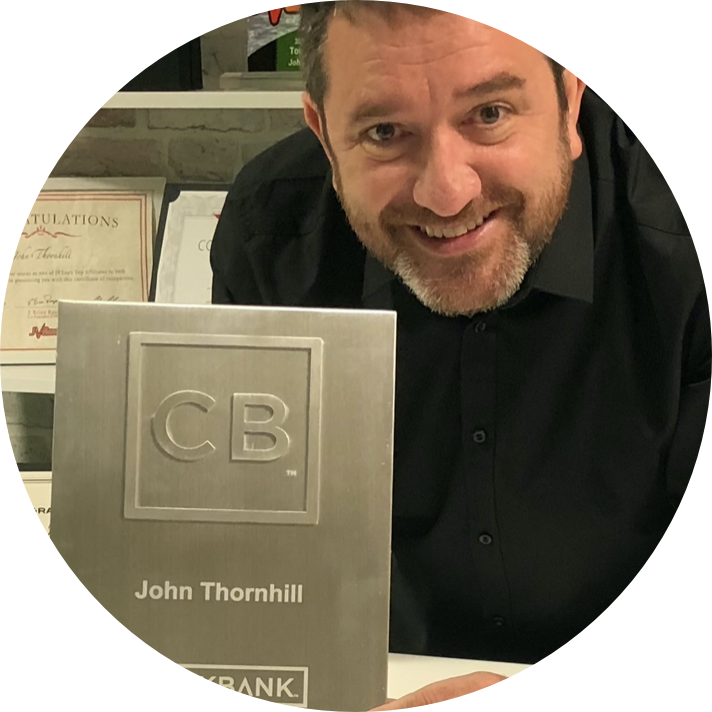
e-business-e-marketing
How To Make $3493 Commissions Without Doing Any Selling
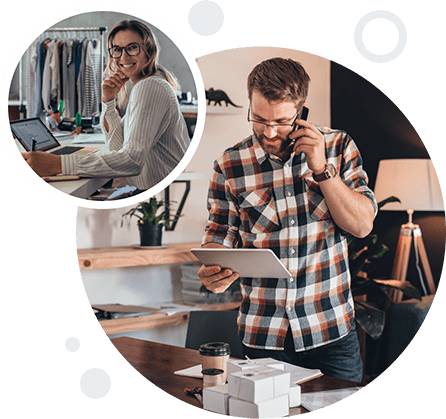
e-business-e-marketing
Successful dropshippers have reliable suppliers.

e-business-e-marketing
People Think I Use A Professional Voiceover Artist. NO! I Just Use Speechelo!

e-business-e-marketing
Make Money Testing Apps On Your Phone Or Tablet

e-business-e-marketing
Make More Money or Lose Everything
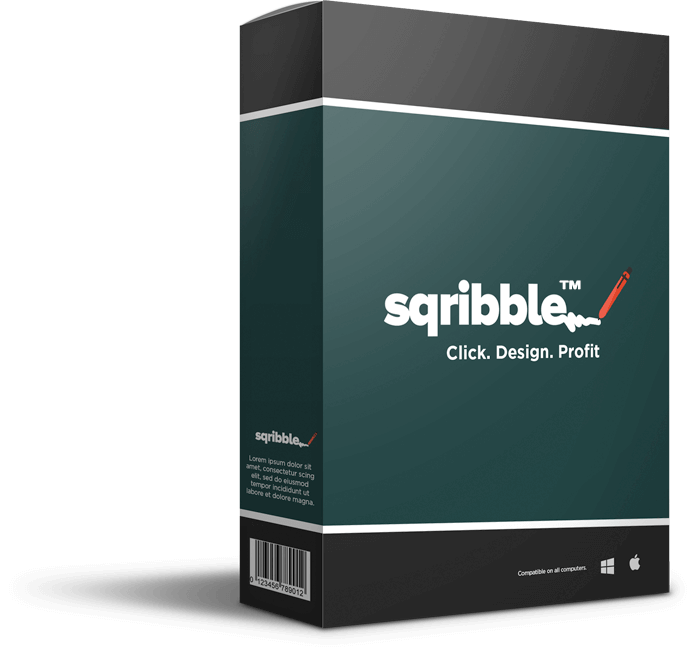
e-business-e-marketing
Sqribble Is The ONLY eBook Creator You’ll Ever Need.

e-business-e-marketing
Work & Earn as an Online Assistant
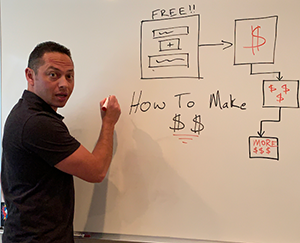
e-business-e-marketing
Create Ongoing Income Streams Of $500 To $1000 Or More Per Day

e-business-e-marketing
It's The Internet's Easiest Side Business.

e-business-e-marketing
